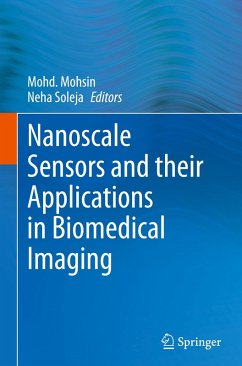
Molecularly Imprinted Polymers: Path to Artificial Antibodies

PAYBACK Punkte
53 °P sammeln!
The book delves into the intricate realm of Molecularly Imprinting Polymers (MIPs) functioning as artificial antibodies. The book explores several subjects, such as the basic principles, historical development, methods for creating and analyzing MIPs, creation of specific recognition sites, computational modeling, responsive behavior to stimuli, and the nano-scale applications of MIPs. Furthermore, it emphasizes the pivotal role of MIPs in the detection of cancer, infectious diseases, and the detection of bacteria and viruses. In addition, the book explores the field of different sensor techno...
The book delves into the intricate realm of Molecularly Imprinting Polymers (MIPs) functioning as artificial antibodies. The book explores several subjects, such as the basic principles, historical development, methods for creating and analyzing MIPs, creation of specific recognition sites, computational modeling, responsive behavior to stimuli, and the nano-scale applications of MIPs. Furthermore, it emphasizes the pivotal role of MIPs in the detection of cancer, infectious diseases, and the detection of bacteria and viruses. In addition, the book explores the field of different sensor technologies, specifically focusing on MIP-based electrochemical and optical sensors. It also highlights how these sensors might be integrated into wearable, flexible, and chip sensors. In addition, the book explores developing technologies and potential future applications of MIPs as artificial antibodies. This book offers a complete grasp of the promise and limitations of MIPs by providing insights into their challenges and real-time applications.
The book will be a useful resource for researchers, students, professionals, and practitioners in bioengineering, biotechnology, medicine, and ethics.
The book will be a useful resource for researchers, students, professionals, and practitioners in bioengineering, biotechnology, medicine, and ethics.














